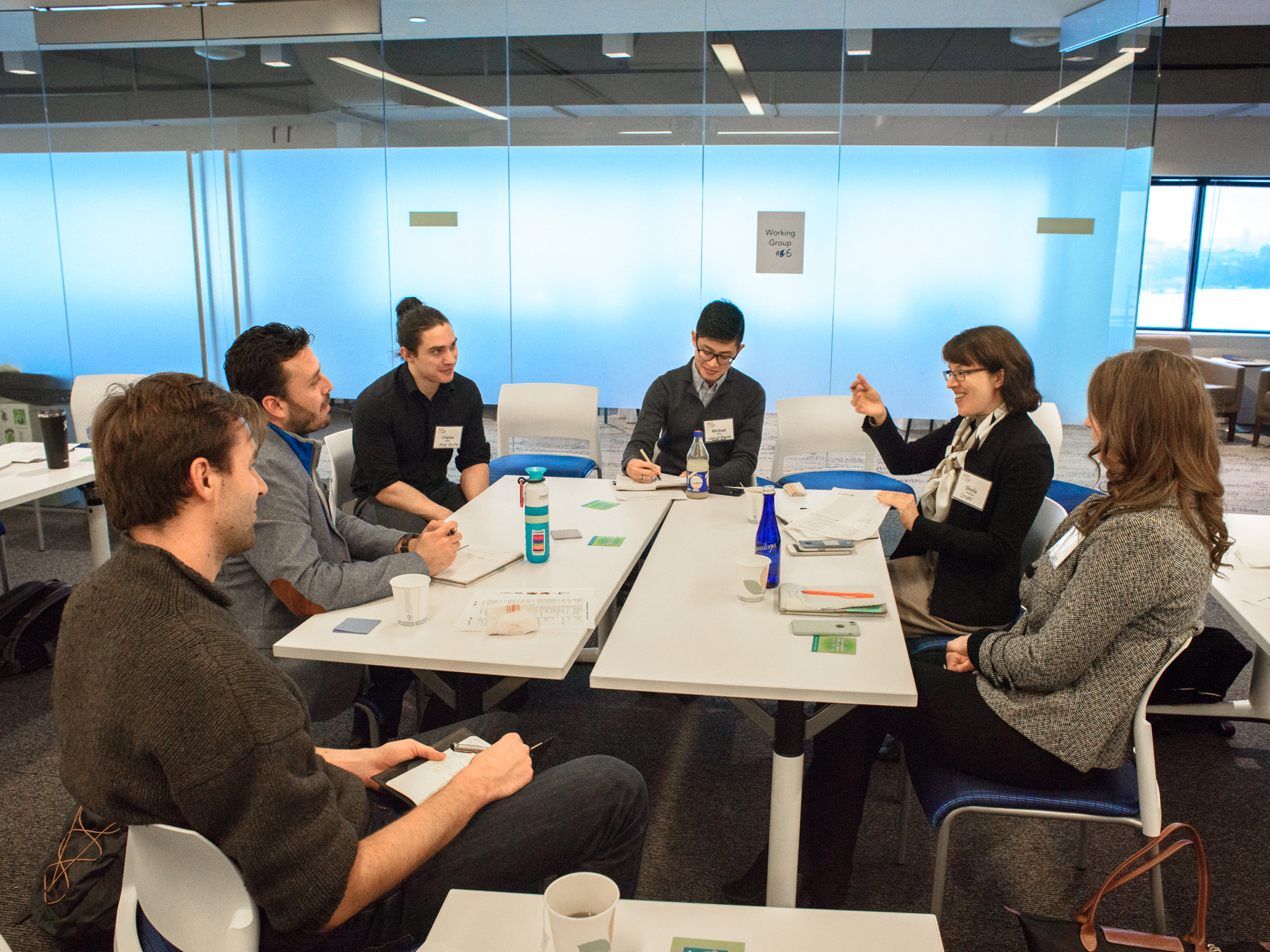Menu
ESI Stories
MIT students ask local climate activists about the hard work of politics and persuasion
Contributed by Aaron Krol
On December 12, 2019, MIT played host to five activists and organizers from the Boston area whose organizations are fighting to get meaningful legislation on climate change enacted as swiftly as possible, on the local, state, and national levels. The event, “Overcoming Challenges of Climate Policy: Beyond the Climate Symposia,” was organized by MIT students as a response to the recent MIT Climate Symposium on “Challenges of Climate Policy,” which took place on October 29.
Speakers at the earlier symposium, most of them representing universities and large research organizations, articulated some of the major obstacles to political action on climate change, and offered their ideas on messaging strategies to build support for that action. Still, students like Alexandre Tuel, a PhD candidate in the Department of Civil and Environmental Engineering, wanted to explore the methods of climate activism in more detail. Tuel had the idea of convening a second panel, with speakers from the world of political engagement, which would take as a given the need for urgent action and the existence of substantial roadblocks, and focus specifically on theories of change. Co-sponsored by the Environmental Solutions Initiative and the MIT Climate Action Team, this panel included professionals and volunteers from across the spectrum of political influence, from lobbying to get-out-the-vote operations to street protests and public pressure campaigns.

Executive Director Nathaniel Stinnett of the Environmental Voter Project speaking at “Overcoming Challenges of Climate Policy,” with fellow panelists Mary Cerulli (L), Gary Rucinski (R) and Allen McGonnagill (far R)
The event began with brief presentations from the five panelists: Mary Cerulli, a volunteer with Mothers Out Front who is interested in the influence of large investors in fossil fuel extraction; Nathaniel Stinnett, Executive Director of the Environmental Voter Project, who concentrates on improving the poor turnout rate of voters who list climate change among their top issues; Gary Rucinski, Northeast Regional Coordinator for Citizens Climate Lobby, which lobbies for a single high-impact carbon pricing bill; Allen McGonnagill, a volunteer with Extinction Rebellion Massachusetts, which uses nonviolent civil disobedience to move urgent climate action into the mainstream of public opinion; and Alyssa Lee, Campus Programs Manager for the Better Future Project, who advises and encourages students on divestment campaigns at their universities. After introductions, the panelists took questions from students and the broader MIT community for 90 minutes. The discussion was moderated by Jess Cohen, an undergraduate student and part of the leadership of both the MIT Climate Action Team and MIT Divest.
“Overcoming Challenges of Climate Policy” struck a notably different tone from the MIT Climate Symposia, characterized by open hostility to what Stinnett at one point called “the evil of the fossil fuel industry” and a frank acknowledgement of the vast gulf between the Republican and Democratic parties on climate change. (Though the panelists did not go easy on either Democrats or the deep blue state of Massachusetts.) But despite a sober perspective on the active obstruction to climate action in U.S. politics, the panelists agreed there are real levers available to achieve change at the pace that the climate crisis demands. They also saw major opportunities to continue changing minds on the issue—whether by leading with an attractive solution like Citizens Climate Lobby, by breaking “climate silence” like Extinction Rebellion, or by using stories to make climate change more personal, as Lee does on college campuses. And all five panelists encouraged students at MIT to get involved in demanding new climate policies here in Boston and Cambridge. Local policy, Stinnett noted, has some of the greatest potential to effect change, thanks to city and state control over housing, transportation, and energy consumption. And even if your city or campus has only a small impact on global greenhouse gas emissions, Lee observed, making change where you live is how you model new policies and build talent for the fight ahead.
It’s also, McGonnagill said, how you start to build a movement—as the rapid growth of Extinction Rebellion from its origins in London can attest.
You can watch a video of the event, edited for length to one hour, below.
















